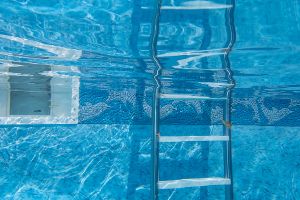
A pool heater is essential for any pool owner in Las Vegas, ensuring comfortable swimming temperatures year-round. Understanding the basics of pool heater repair can help homeowners maintain their pool’s efficiency and avoid costly repairs.
Understanding Pool Heater Components
To effectively maintain and repair your pool heater, it’s crucial to understand its main components and their functions.
- Heat Exchanger: Transfers heat from the heater to the pool water.
- Thermostat: Regulates the water temperature by controlling the heater.
- Ignition System: Ignites the fuel to start the heating process.
- Burners: Produce heat by burning fuel.
- Sensors: Monitor various aspects of the heater’s operation to ensure
safety and efficiency. - Gas Valves: Control the flow of gas to the burners.
- Control Panel: Allows you to set and monitor the heater’s operation.
Regular Maintenance Tasks For Pool Heaters
Regular maintenance is crucial to keep your pool heater running efficiently and extend its lifespan.
Visual Inspect These Items Regularly
- Heat Exchanger: Over time, the heat exchanger can accumulate debris and scale, reducing efficiency.
- Thermostat: Ensure the thermostat functions correctly and maintains the desired water temperature.
- Ignition System: Regularly inspect the ignition system to ensure reliable operation.
- Burners: Burners can become clogged with debris, affecting the heater’s performance.
- Monitoring Sensors: Check sensors for proper operation to prevent safety and efficiency issues.
- Gas Valves: Regularly inspect them for leaks or damage and ensure they function correctly.
- Control Panel: Keep the control panel clean and check for any error codes or signs of malfunction.
Preventive Maintenance You Should Perform
- Clean The Pool Regularly: Maintain proper chemical balance and cleanliness to prevent debris buildup.
- Replace Filters: Regularly clean or replace pool filters to ensure proper water flow.
- Heater: Check for unusual sounds, signs of damage, or leaks.
- Clear Debris: Keep the area around the heater free from debris.
- Schedule Annual Maintenance: Hire a professional for annual inspections and maintenance.
Understanding Pool Heater Issues
Pool heaters can encounter various issues over time. Knowing the common problems can help you determine your best course of action for repairs.
Most Common Pool Heater Failures
- Faulty Thermostats: Inconsistent water temperatures or failure to reach the set temperature.
- Ignition Issues: The heater fails to ignite or turns off unexpectedly.
- Malfunctioning Sensors: Erratic heater operation or error codes displayed on the control panel.
- Broken Heating Elements: Reduced heating efficiency or no heat production.
- Leaking Gas Valves: Gas odor near the heater or visible gas leaks.
- Clogged Burners: Uneven heating or strange noises during operation.
- Corrosion: Visible rust or water leaks around the heater.
When You Should Call A Professional
While homeowners can handle some minor issues, many repairs require professional expertise.
- Heater Won’t Turn On: If it doesn’t start or heat properly, it’s time for a professional inspection.
- Unusual Noises: Strange sounds like clunking or whistling indicate mechanical issues.
- Visible Leaks: Leaks around the heater require immediate attention.
- High Energy Bills: A sudden increase in energy costs can indicate an inefficient heater.
DIY vs. Professional Repairs
While DIY repairs might seem cost-effective, hiring a professional offers several advantages when repairing your pool heater.
- Expert Knowledge: Experienced technicians have the skills and tools to diagnose and fix issues quickly.
- Quality Parts: Access to high-quality replacement parts ensures durability and reliability.
- Safety: Professionals are trained to handle repairs safely, especially with gas and electrical components.
- Cost-Effective Solutions: Professionals can provide cost-effective repair options and warranty considerations.
Energy-Efficient Upgrades To Consider
Upgrading to a modern, energy-efficient pool heater can significantly reduce energy costs and provide a more consistent and comfortable swimming experience.
Variable-Speed Pool Pumps
Unlike traditional single-speed pumps, variable-speed pumps operate at different speeds, adjusting to the pool’s filtration needs. They use less electricity, reduce motor wear and tear, and enhance the entire pool filtration system, resulting in cleaner water and lower maintenance costs.
Solar Pool Heaters
Solar panels convert sunlight into heat, which is used to warm the pool water. They can significantly reduce heating costs, are eco-friendly, and require minimal maintenance.
Heat Pumps
Heat Pumps extract heat from the air and transfer it to the pool water, operating efficiently in moderate climates. They use electricity to transfer heat, resulting in lower energy consumption, provide a consistent water temperature regardless of weather conditions, and have a long operational life.
Pool Covers
Pool covers help retain heat, reduce evaporation, and keep debris out of the pool. They enhance the efficiency of the pool heating system and reduce the workload on filtration and cleaning systems.
Energy-Efficient Pool Heater Models
Modern pool heaters are designed to use less energy while providing effective heating. Advanced technology is used to heat water more efficiently, reducing energy consumption.
Need Pool Heater Repair Help In Las Vegas
Understanding the basics of pool heater repair and maintenance can help you keep your pool in excellent condition year-round. Regular maintenance, timely repairs, and professional expertise are key to ensuring your pool heater operates efficiently. Contact Oasis Pool Maintenance for reliable Las Vegas pool heater repair and maintenance.
